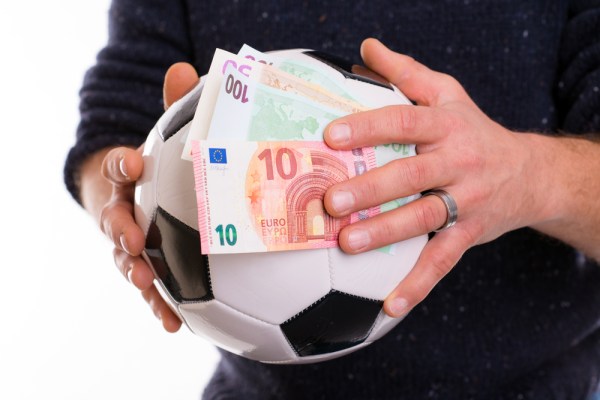Sport is about triumph, passion, pain and belonging. Yet it loses every iota of truth and meaning for fans when dirty money corrupts the players and referees. Unfortunately, in 2015, it’s hard to think of a sport left untouched by the spindly fingers of organized crime and match fixing. It doesn’t matter if you’re into sumo wrestling, NBA, boxing, college football or the English Premier League — at some point, someone somewhere has tried to throw a match for financial gain.
Over the last three years there have been reported scandals all over the world, with European sports seeing the largest impact, according to this ICSS white paper. The organization predicts that there were thousands of instances of corruption and match fixing all over the world, and that those reported instances were likely only “the tip of the iceberg.”
The EU’s law enforcement agency, Europol, has blamed South Asian and Eastern European crime syndicates, which are thriving due to the lack of government action in their own countries. Sports clubs, athletes and fans are all suffering the consequences. There is, however, a faint light at the end of the of the tunnel and a way to turn it all around. The solution comes from an unlikely place: Fantasy Sports.
The Scale Of Unregulated Gambling, Match Fixing And An Organized Coup
The worldwide sports wagering arena is worth approximately $1.5-2 trillion according to ICSS figures, with as much as 85 percent carried out in an unregulated market. Moreover, according to an estimate from The American Gaming Association in 2013, $138.9 billion was wagered illegally on sports in the U.S. alone.
The problem is massive for sure. With online gambling set to grow 10.6 percent (CAGR) from 2014-2018 without strict regulation, the industry is currently wide open to crime syndicates who see gambling as an easy and convenient way to launder their money and bring in extra income from fixed matches.
With so much money involved, snuffing out corruption is easier said than done. But, there are a number of organizations like the ICSS that are dedicated to whistleblowing (no pun intended) and education within sport.
Sportradar, a statistics organization that works in conjunction with several major sports leagues, now runs educational programs such as the Integrity Tour in Greece. These programs are delivering 120 mandatory workshops and 2,000 e-learning modules to the top professional soccer clubs in the country. Sportradar has shown that education is a means to give players and clubs the tools they need to deal with and reject bribery.
Sportradar has technology on its side. The organization’s Fraud Detection System monitors more than 65,000 soccer matches globally and flags unusual betting patterns both before and during a game. The organization also has an official understanding with Europol, and engages in two-way information sharing with the international law force. A detailed report is made if suspected fraud is detected, and an investigation can be undertaken; 380 of these reports were made in 2014.
Even with these efforts, it’s hard for these organizations to compete with what seems like an endless stream of easy money. But there is hope still.
The First Step To Corruption-Free Sports
In 2006, The U.S. Congress passed the Unlawful Internet Gambling Enforcement Act (UIGEA). The law prohibits online gambling in any form, with an exception made for fantasy sports. A key clause in the original law states that fantasy sports contests must be based on multiple real-world events and that “no aspect of scoring or how a team wins is based solely on 1 performance or 1 athlete/player in any 1 event.”
Although three U.S. states have legalized online gambling since 2010, the principle recognized in UIGEA remains the same: The risk of corruption drops significantly when criminals have no hope of affecting particular performance aspects for multiple results over multiple games.
